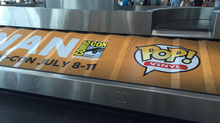Thoughts: Diversity in Literature
- readerskitchen

- Oct 20, 2016
- 3 min read

This is an issue that has come up frequently lately. I've read about it on Twitter, Instagram, and in my own line of work, teaching. I have many of my own thoughts on the subject and, jumbled as they often are, I wanted to share them.
Diversity in books is crucial. But diversity comes in many forms. Racial diversity is not the only kind. Diversity of sexual orientation is not the only kind. Luckily, authors are moving toward including all kinds of diversity in their books, particularly books for younger readers.
(First point- my childhood)
However, I object to the notion that a book can be dismissed or disregarded simply on the basis of a lack of ethnic or racial diversity. I am an avid reader and always have been. As a kid, I never read a single book that that represented me in a traditional sense. Not racially. Not ethnically. Not religiously. This did not impact me.
As a reader, I found countless ways to connect with the characters on different levels. I related to Bilbo because I am short. I related to Hermione's fierce bookishness and complete disregard for other people's opinions of her. I related to the strict societal rules imposed on Elizabeth Bennett.
The one character who appeared to be made just for me happened to be one of my least favorite Disney princesses. I always felt like she was forced on me. People said I had to like her because Disney made her just for me. But, I didn't identify simply with my ethnic background. I wanted to like Belle. She was strong and independent and a lover of books and learning. She was odd and made to feel different and embraced it wholeheartedly. I wanted to be just like Belle, and that in no way meant I wanted to be white or French.
I used to chafe against the idea that kids of diverse backgrounds needed to see those exact backgrounds reflected in literature and media in order to be legitimized. I found legitimacy elsewhere.
(Second point - where I contradict myself)
On the other hand, I had an experience with a student yesterday that turned my ideas on their head. She is a young Muslim girl who, like most 5th grade girls, suffers from a lot of insecurities and self-doubt. I asked her if she'd ever read the Ms. Marvel comics. I explained to her that Ms. Marvel is a young Muslim superhero girl. She was beyond shocked. She kept asking clarifying questions like, "a real superhero?" and "is it like DC hero or something else?" When I told her that yes, it is a MARVEL superhero she couldn't stop smiling. She immediately came over to flip through the book. She couldn't stop grinning and hopping up and down. I realized then how much it meant to her that the mainstream had seemingly legitimized her by taking an important part of her identity and putting it in one of their characters. It meant so much to her.
Therefore, it should mean a lot to us.
It doesn't have to be all children, or even most children, but if there are kids who can be so deeply impacted by this, then we should care. We should encourage it. We should continue to push growing diversity in literature. All kinds of diversity.
(Final point - I swear)
Authors: write what you know. Write what's in your heart and what you see in the world around you. Don't force some comical, Disney-esque diversity on readers. It does more harm than good. Write from what you know and the readers will do the rest. They might identify with a little Pakistani Muslim girl or a middle-aged Hobbit man. We just have to make sure they have the options.
he seemed completely speechless and shocked. This student is a young Muslim girl. She is insecure (as most 5th grade girls are) and shy. I happened to ask her if she'd ever read the Ms. Marvel comics and she said no. T
















Comments